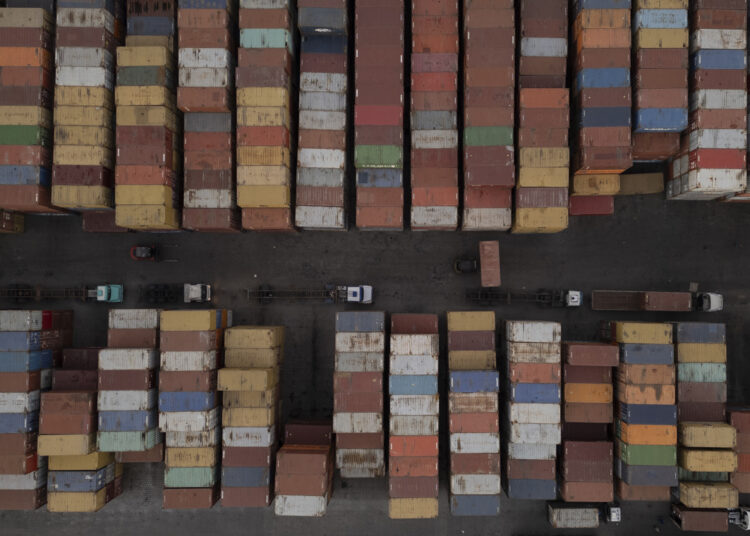I was teaching for the first time at Columbia University during the first Gulf War in 1991. As the snow fell on New York during that “spring semester,” as they call it there, smart bombs were falling from the sky in Iraq.
Where I was, it was impossible to ignore.
A network that broke television viewership records, CNN, reported live images captured from the cockpits of bombers, like a science fiction movie, where the explosions had a distant color, the devastation looked like special effects, and the victims were invisible.
On the other hand, however, anti-war protests by university students multiplied, morning, noon, and night. Part of these events included nonstop open seminars with experts on the Middle East, such as the Palestinian Edward Zaid, or on international politics, such as Richard Betts, who gave lectures to crowds that filled enormous amphitheaters.
While the first hot war of the post-Cold War era unfolded, George H. Bush would christen as the New World Order that supposedly brave new world that was coming, finally free of the Soviet Union, communism and extreme ideologies, where freedom, democracy, and peace under the seal of the West would become the new rules of international coexistence. Those rules were to include the predominance of multilateralism, cooperation, peaceful conflict resolution, respect for international law, and other brilliant ideas.
Even though evidence had shown that the post-Cold War period never delivered the anticipated universal happiness, this new liberal order, thus characterized, remained a predominant mental lure for some ever since. Rather, it ushered in a period of turbulence, international insecurity, and uncertainty the likes of which had not existed since the end of World War II.
To claim that this liberal order was going perfectly well until the Russians invaded Ukraine and Donald Trump took the White House for a second time seems to ignore the serious tensions and profound imbalances in the international system that have dragged on over these three-plus decades. It is not now that we are hearing, as Coleridge would say, the echoes of ancestral voices prophesying war.
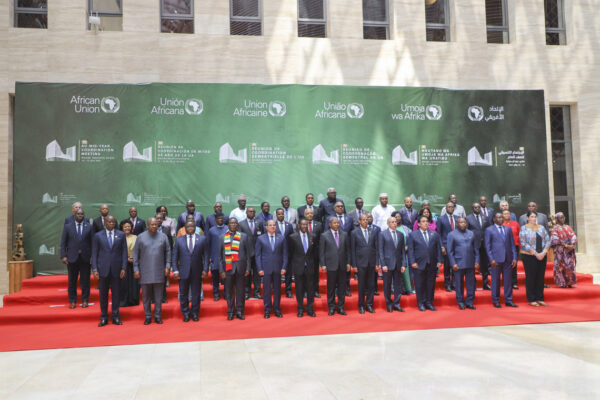
Too much separates us from that triumphalist ceremony to want to ignore everything that came after. What prevailed was not diplomatic resources, cooperation, negotiation and the search for balance, but the logic of national security and unilateralism.
From the Global South, we can see that there is nothing but the expansion of conflicts, propagated and reproduced, thanks to the way the great powers have reacted to them. Starting with wars that were not precisely “civil,” conflicts that were not “ethnic-religious” or “tribal”, flagrant violations of human rights that were not committed solely by dictatorships or “totalitarian” states, the use of force by established states, far greater and more lethal than that adopted by terrorist or criminal networks. Wars that have not been waged solely with missiles and drones, but with financial and commercial resources, state and private, more powerful than anything within the reach of small states and their associations; media and cultural markets controlled by oligarchies.

Compared to the Cold War, the number of large-scale conflicts in which NATO countries directly intervened has multiplied. From the “Bosnian war” (1992-95) and the “Kosovo war” (1998-99), the “Afghan civil war” (1996-2001), the anti-terrorist crusade of NATO and its allies (since 2001), the so-called “Afghan war” (2001-2021), the intervention in Libya (2011), to the revival of old confrontations with Russia and China, the contradictory Western policies regarding nuclear non-proliferation and the securitization of the immigration policies of most member states, the growth in the density and complexity of conflict areas in the post-Cold War period is evident, as well as, in this context, the greater belligerence of the policies of Western allies.
It must be acknowledged, however, that in the last decade, ultranationalism, ideological rigidity, policies of blocs surviving from the Cold War, and the explosive nature of accumulated problems in areas such as poverty, health, and violence have worsened. These problems are ravaging not only entire continents like Africa but also impacting the societies of the North.
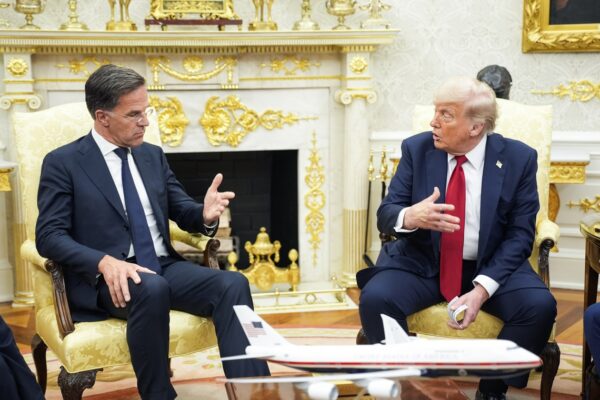
These are no longer “backward” religions and cultures, as Islam and various religious fundamentalisms are often described, but are manifest in social and political currents of the new far right and its populisms, at the heart of Western societies, even those that respond to different cultures, historical processes, and geopolitical contexts.
In this context, the extreme nature of the dominant political discourse in the United States makes sense, culturally speaking, not simply as a deviant or eccentric case in the figure of its president. This articulation includes the stark style of defining and defending its national interests, in the classic form adopted by geopolitical strategists of the early 20th century, rather than the liberal code of peace and human rights in vogue enacted by the leadership since the Cold War.
The return to these codes, their rooting in segments of the power elite, and their greater social resonance, generates contradictions within the country and among its allies, although at the same time, it expresses interests and visions akin to what some identified as the national security state at the height of the Cold War.
However, it is not a question of us entering a historical recycling process, but rather a period of reorientation where everything is becoming more confusing everywhere.
In search of solutions to alleviate this confusion and also the tendency toward a single or closed approach, I wanted to foster an open debate on this vast topic. With that in mind, I posed some questions to four experts in international affairs in the manner of a remote symposium. These were:
- What has happened to the gravitational system of international politics, in terms of the main, most powerful forces that govern it? To what extent has this center of gravity become diffuse, fragmented, or lost?
- If so, is it a direct consequence of changes in U.S. domestic politics in recent years and their global impact? Or is it responding to the emergence of other actors, including some that are not globally powerful forces?
- From this perspective, what could be the dynamics of this center of gravity in the coming years? Will a new one emerge, or will entropy prevail? What does it depend on?
Among the experts I consulted, four prominent scholars of international affairs responded: two Americans, one European, and one Cuban: Brantly Womack, Jorge Domínguez, José Antonio Sanahuja, and Arturo López-Levy.1
Below are some of their responses, which substantially advance the debate.
Brantly Womack
I would say that the global transformation of communication, information, and logistics over the past forty years has increased the importance of the gravitational field, but that shifts in relative mass have changed many of the asymmetries that shape relational tracks.
The rise of China is the most obvious change, but China is only part of the story. In 2008, the GDP (PPP) of the developing world exceeded that of the developed world for the first time since the 1870s.
Unlike gravity, international exposure can lead to repulsion as well as attraction. Interaction is not simply determined by relative exposure. It is shaped by history and diplomacy. The globe can be pictured as a multinodal web of asymmetric relationships, each node located in its specific resources, needs, and relational pattern.
The ”American Century” began to fade in 2008 and is currently taking a nosedive in the second Trump administration. The United States and China are in an asymmetric rivalry for the long term, and their relationship is the middle third of the global political economy. However, the world has another two-thirds, and it will hedge its exposure to the uncertainties at the center.
The U.S. is reacting to the declining effectiveness of its control over its partners and the international system more generally. While it targets China as “the pacing challenge,” the underlying problem is broader.
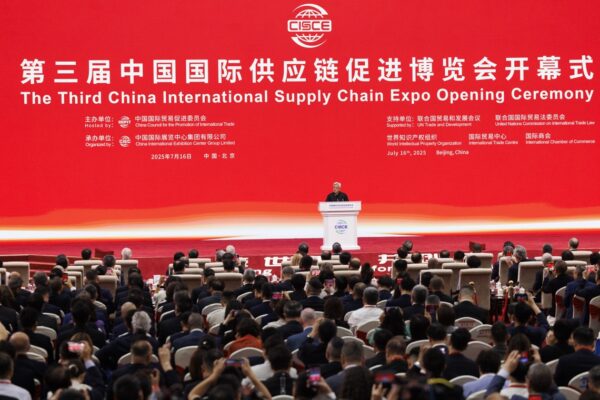
The U.S. political milieu is in a mood of hegemonic nostalgia, and this is likely to continue. It has moved from an urge to prop up and restore its hegemonic posture (Obama-Biden) to maximize transactional pressures on each relationship. U.S. behavior is key to global response, but it produces guarded compliance. Ultimately, it demonstrates the gulf between the U.S. (especially Trump’s) conception of its interests and the interests of its partners.
Jorge Domínguez
The international system resembles an onion. Each layer contributes something different. In the military realm, a first dimension is 1+. As Russia’s inability to crush Ukraine, China’s caution in not engaging in conflict with Taiwan, Israel’s inability to do what it wanted in Iran on its own, and as the U.S. bombing of Iran has shown: there is only one superpower.
A second military dimension, however, reflects an important change. The number of countries with nuclear weapons has continued to grow, with North Korea being the most recent, and with the likelihood of acceleration.
The comparative lesson of Ukraine and Iran, both attacked, albeit by different enemies, and of North Korea, which no one attacks, is that having both nuclear weapons is desirable. That could be the future of Saudi Arabia, Japan, South Korea, Australia, and, of course, Iran.
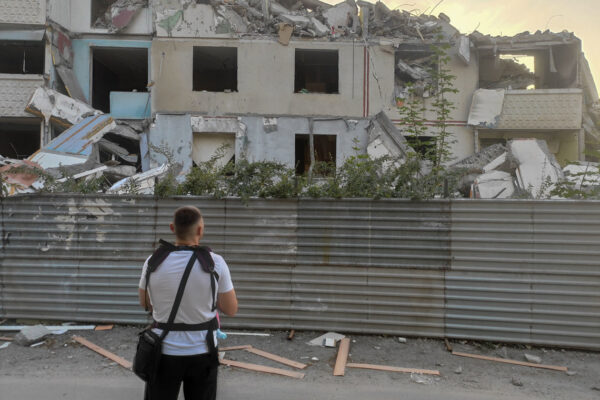
Keep working on the onion, and you stumble upon the financial system. The dollar remains king, although gradually weakening, even more so under Trump. The purchase of U.S. Federal bonds has long since depended on the Chinese, the Japanese, and the Europeans. This financing is what has continued to strengthen the dollar, which may be, but is not yet, its Achilles’ heel.
You get to the commercial system, which seemed orderly and stable. Trump’s great achievement is screwing it up, generating uncertainty day by day. In its structural dimension, of course, much had already changed due to China’s impressive commercial boom, but also due to the no less impressive rise of South Korea, Taiwan, and the ASEAN countries.
U.S. domestic policy had provided a certain stability in the fundamental elements of its foreign policy. There was a broad consensus between Democrats and Republicans. NATO was sacred. Free trade as well. Defending the role of the dollar was out of the question. And from there, the great change was Trumpism — that is, not only Trump but also the changes in society generated by the political movements that have supported Trump and the now much more numerous Trumpists in Congress.
José Antonio Sanahuja
My conception of the international system is historical and structural. I pay attention to the relational power exercised by actors, such as the United States, but also to the power of economic structures, institutions, and norms, and also of ideational nature, those that provide legitimacy and a semblance of universality to a given order.
I see hegemony more as the function of structural power, which is rooted in well-established historical structures; they don’t necessarily have to be unipolar. The Cold War was a hegemonic historical structure of a bipolar nature, and globalization has been a historical structure, also governing for more than four decades, in which power was rooted in transnational networks, in a logic of interdependence, which constrained agency factors. Those who adapted to it, like China, fared well; those who couldn’t or wouldn’t adapt, like the Soviet Union and later Russia, didn’t fare so well.
That historical structure came to an end in 2008. We would now be in a phase of interregnum, in Gramscian terms, where the old never fully dies, the new cannot be born, and in this interregnum, the most varied morbid phenomena emerge, the monsters, some easily recognizable. Trump is one of them, Putin is also one of them; the rise of the far right, of new Caesarisms.
The rise of these phenomena cannot be explained apart from the exhaustion of globalization, from the crisis of socioeconomic expectations it has produced, in which there is no glimpse of progress, hope, or future for very broad sectors of society.
This current interregnum, derived from the erosion, from the crisis of globalization and the liberal international order, does not yet reveal what may emerge. Emerging countries lack neither the will nor the capacity to generate an alternative world order. In this interregnum, systemic instability becomes the most relevant factor.
Arturo López-Levy
The greatest transformation in the system of gravitation of international politics is the diffusion of power from the Northwest Atlantic to East Asia as a region and a group of states of the so-called Global South in the global balance.
It is a challenge to the existing order, the normative structure, the concepts, and the management of the multilateral agenda in terms of justice, representation, and inequalities, beyond the differences between states. This is a previously unknown cultural diversity of common interests, shared values, and forms of political organization.
In terms of gravitation, it is important to consider two trends here. One is the so-called coopetition (a blend of cooperation and competition) between China and the United States, which constitutes a fundamental axis of geopolitics in the next decade.
Another is the emergence of new major powers at the regional level. The BRICS appear more like a coordination mechanism for regional powers, with China and Russia attempting to gain power against the West, but without offering an alternative global governance regime. The United States remains the only superpower capable of playing a relevant role in all regional systems.
“America First” Trumpism is a symptom of the inability of administrations of both main parties, from Clinton to Obama, to confront and promote sustainable governance of the globalization that has come to predominate.
Responses to the challenges of globalization have been largely inadequate, also due to the anarchic nature (without government, not without governance) of the international system and the shifts in the balance of power since the end of the post-Cold War unipolar moment.
Entropy will prevail, but its nuances are as important as that trait. The re-creation of a unipolar or imperial moment in international society is extremely unlikely. The United States, even though it is the only effective superpower, is less powerful than Trump’s rhetoric assumes it to be. Neither the United States as a superpower nor any of the great powers that follow or rival it can establish themselves as the center.
________________________________________
1. Due to space constraints, I will publish a full version of the symposium, along with the other pending contributions, in the magazine Temas.

